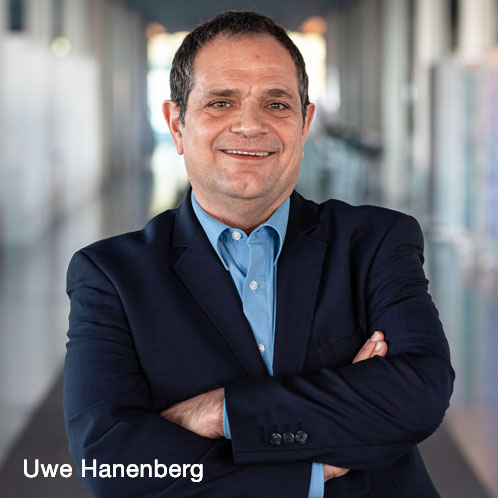Opening the conversation, I ask the panel what they consider the most pressing challenges in the pharma/biopharma space to be at the moment and how innovator companies can overcome them. Dr Paul Quigley (PQ), Principal Research Fellow, Drug Substance, at Quotient Sciences suggests that the nature of new molecular entities (NMEs) and new modalities is rapidly changing.
“The demand for small molecules remains strong,” he says, “but the level of complexity and potency is increasing … and drug substance (DS) volume requirements are decreasing.”
“This trend places significant pressure on contract development and manufacturing organisations (CDMOs) that, traditionally, are geared to support large-volume commercial products."
"The current biotech funding constraints demand that clients deliver key clinical outcomes at accelerated rates with minimum investment in DS development and manufacturing.”

“This presents an opportunity for service providers who can handle small-scale, technically complex projects with integrated offerings for staged progression to key clinical milestones with maximum velocity, minimum expenditure and high-quality outcomes.”
Joe Neale, Vice President, Product Development and Programme Management, at Recipharm, adds: “The phase-down of F-gases with high global warming potential (GWP) is a significant challenge facing developers of inhaled drug products."
"Hydrofluoroalkanes (HFAs) are widely used as propellants in pressurised metered dose inhalers (pMDIs) but they contribute to climate change owing to their high GWP and long atmospheric life.”
“To help with the transition to more sustainable products, Recipharm has developed pMDI valves that are compatible with new, low-GWP propellants. In addition, we recently announced a collaboration with Honeywell to develop pMDIs with a near-zero GWP propellant; plus, we’re expanding our manufacturing capabilities to accommodate future demand from customers.”
Adding another topic to the mix, Jaeyoung Kim (JK), Senior Market Intelligence Specialist at Samsung Biologics, believes that the biopharma industry is facing a highly volatile interest rate challenge, making it harder to finance capital-intensive projects such as building commercial plant.
“Large-scale biologics manufacturing facilities require at least $500 million or more to build and it takes up to 5 years to get them operational,” he says.1
“Reducing fixed costs in business activities is extremely valuable as it gives a biopharma company the resources to focus on its priorities. Working with a CDMO that offers flexible and cost-effective services can help the company to address the challenge.”

“Various partnership models, such as dedicated suites, are also emerging, which may provide flexibility beyond simply outsourcing a manufacturing project by essentially enabling a biopharma company to fully utilise its partnering CDMO’s site as if it’s a part of its own manufacturing network.”
Hans Johansson (HJ), Global Applications Director at Purolite, an Ecolab company that specialises in downstream purification technologies for CDMOs and therapy developers, summarised the panel’s input by stating that the foundation of a good partnership is built on trust.
“And trust, he explained, “requires open communication, clear objectives and a common goal. Following COVID, for example, there’s a lot more collaboration between suppliers and bioprocessing customers, a stronger focus on supply chain robustness, risk mitigation and planning ahead for future challenges."
"At Purolite, we have strategically collaborated with technology partners such as Repligen to combine our resin base bead technology with innovative ligand and column packing expertise to provide more options to the downstream market, providing more choice for CDMOs to pass on to their customer base.”
KSR: In which areas of manufacturing are you seeing the greatest demand for outsourcing?
HJ: It’s difficult to point at any specific area but, with the fantastic growth of biologics as therapeutics during the last two decades, there is a constant need for expertise in every area of downstream purification from column packing to advanced modelling.
To meet demand, our business has invested significantly to provide a global team of field-based application scientists who work with our CDMO customers to understand and overcome their challenges every day.
With respect to vendor-pharma relations, it’s very important to collaborate in the development of new technologies. Pharma is dependent on vendors to deliver products to patients … and vendors are dependent on pharma companies to understand the critical problems involved in developing the right products.

The ability to engage external expertise and technical support from solution and service providers will remand in demand as therapeutic modalities continue to broaden.
PQ: Biotech companies increasingly look for service providers who have significant preclinical to early development and manufacturing capabilities. Additional requirements are the ability to flex on capacity, technology (batch versus flow) and containment (from low to high potency).
Many biotechs need one provider who can derisk the development and scale-up of NMEs by running process and analytical development in parallel with solid state and formulation technology.
There’s an increasing demand for an integrated package in which all services are run in parallel by one provider, rather than multiple ones, offering the benefits of control, lower costs and increased velocity of delivery.
JK: Although many new modalities are emerging, the outsourcing demand for antibody based biologics is expected to remain high. It’s important to recognise the difference between advanced modalities such as cell and gene therapies, which have high demand for technology and platform outsourcing, and antibodies, demand for which is driven by volume.
Antibodies are currently showing tremendous growth rates, despite occupying approximately 60% of the bio-CDMO outsourcing market. Sales of antibody based products were estimated to be $226 billion in 2023 and are expected to reach $346 billion in 2028.
In addition, antibody-drug conjugates (ADC) and bispecific antibodies are growing at an average annual growth rate of 34% and 24%, respectively, from 2021 to 2028.

Recipharm’s Vincenza Pironti, Strategic Marketing Director, Corporate Sterile Fill Finish, comments: “This year, in particular, Recipharm has seen a rise in demand for the sterile filling of prefilled syringes (PFS)."
"This increase is part of a broader requirement for the sterile fill and finish of complex dosage forms. This growing need derives from a larger proportion of biologics continuing to progress through the development pipeline for parenteral delivery, which also requires aseptic processing."
"PFS are much easier to administer for patients or healthcare professionals than other injectable forms as they come ready prepared with the required dose.”
KSR: What do you think the industry’s hot topics will be going into 2024?
PQ: Given that bringing treatments to market takes an average of 10–15 years, there’s an increasing demand for speed.2 As a result, CDMOs are moving toward integrated drug substance (DS), drug product (DP) and clinical offerings.
Running DS and DP services in parallel streamlines production timelines; in addition, effective DS research and development allows for a smooth transition through manufacture and scale-up with a suitable dosage form.
Siloes are mitigated, allowing for specialists throughout the various development stages to work together, prioritising communication and allowing for full visibility.
Even if companies don’t choose a fully integrated DS/DP platform, having the ability to outsource multiple services to one provider offers significant benefits and accelerates timelines.

Dr Uwe Hanenberg, Head of Product Development, Oral Solid Dose, at Recipharm, believes that personalised medicines will become a key trend in 2024.
“CDMOs will need to provide development support for these medicines, which are customised to treat specific patient populations based on factors such as age, genetics and weight.”
“These medicines offer more effective treatments with improved patient outcomes. They are also set to bring greater efficiencies to healthcare systems and reduce waste from ineffective treatments."
"To support the development of personalised medicines (as well as conventional ones), we expect to see artificial intelligence (AI) and machine learning (ML) more widely used for data analysis at the discovery and development stage."
"This will help to optimise the collation and review of information, lead to a better understanding of products and related processes, and reduce timelines and minimise delays when getting these drugs to market.”
JK: Big pharma companies and CDMOs have started to implement generative AI into their corporate strategies. This offers benefits in areas such as drug discovery, diagnostics and demand planning optimisation for in-house and external manufacturing.
These processes can be streamlined with the help of molecular modelling and structural biology powered by AI. It can analyse multiple data sources and medical images (histopathology, MRIs, CT scans, X-rays, etc.).
Increasing drug accessibility is also important and accurate demand planning followed by on-time, in-full supply is crucial to saving lives.

AI-powered demand planning can help to optimise inventory stock levels and strengthen partnerships with external manufacturing networks. This could lead to seamless manufacturing planning such that the difference between using a CDMO and one’s own facility is almost negligible.
HJ: Digitalisation and data analytics in manufacturing will continue to develop and advance faster with the support of AI algorithms. I also believe there will be an increased focus on sustainability and the environmental aspects of production throughout pharma, including raw material use.
I’m very optimistic about the future, seeing fantastic advances in the development of new therapies. On the downside, though, there is a limit to how much cost society can absorb, so increasing manufacturing efficiency and reducing the cost of therapeutics will be essential to ensure long-term success and sustainability.
References
- www.mckinsey.com/industries/life-sciences/our-insights/rapid-growth-in-biopharma.
- https://phrma.org/policy-issues/Research-and-Development-Policy-Framework.
